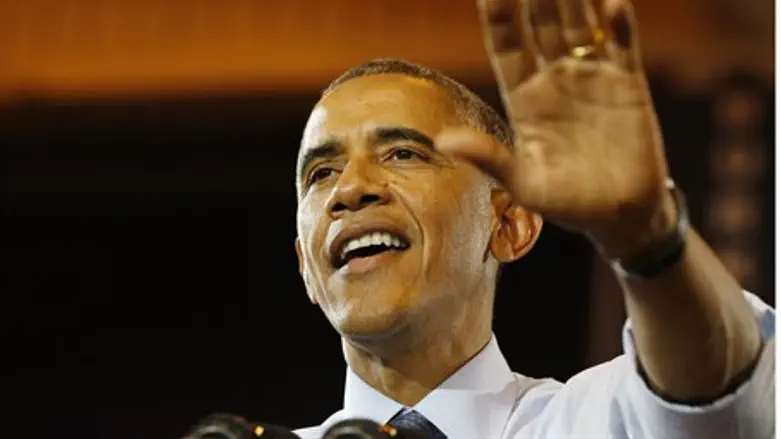
As the deadline for a nuclear deal with Iran draws near, the president of the United States admitted on Sunday that “significant” gaps remain between the Islamic Republic and the West.
"The good news is that the interim deal that we entered into has definitely stopped Iran's nuclear program from advancing. .... So it's been successful," President Barack Obama told ABC News’ “This Week” in an exclusive interview.
"Now the question is, can we get to a more permanent deal? And the gaps are still significant," he added.
Obama said that if an agreement is reached, he was confident he could convince a skeptical Congress of its strength in preventing Iran from creating a nuclear weapon, even as members of the incoming Republican majority insist they'll impose additional sanctions on Iran if they don't like the deal.
"I'm confident that if we reach a deal that is verifiable and ensures that Iran does not have breakout capacity, that not only can I persuade Congress, but I can persuade the American people that it's the right thing to do," Obama said.
"Our goal is to solve a particular problem here, which is making sure Iran doesn't trigger a nuclear arms race, can't threaten the United States, can't threaten allies like Israel," he added.
"What a deal would do is take a big piece of business off the table and perhaps begin a long process in which the relationship not just between Iran and us but the relationship between Iran and the world, and the region, begins to change," said the President.
The deadline for an agreement is Monday, and Iran and the six world powers are holding talks in Vienna in an attempt to reach a lasting agreement on Tehran's disputed nuclear program.
The Islamic Republic hotly denies its nuclear program is meant to build a nuclear weapon, even though the UN’s International Atomic Energy Agency (IAEA) has revealed Iran is not abiding by the interim conditions in refusing to answer questions on the military aspects of its program.
Iran has been toughening its stance in recent weeks. Iran’s chief negotiator, Abbas Araqchi, recently said he sees no prospect for a deal unless the other side abandons its “illogical excessive demands”.
An Iranian official reiterated this earlier on Sunday, saying that reaching a deal with the West over its nuclear program by Monday is “impossible”.
The official said the discussion “may soon have to shift from trying to reach an agreement to extending negotiations past tomorrow's deadline for the end of this round of negotiations.”
Obama’s comments aired before reports surfaced that his Secretary of State, John Kerry, had proposed to Iranian Foreign Minister Mohammad Javad Zarif that the two sides start discussing post-deadline talks.
